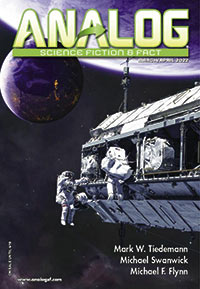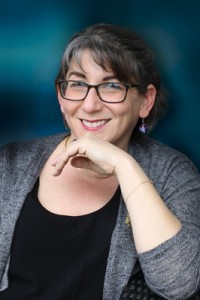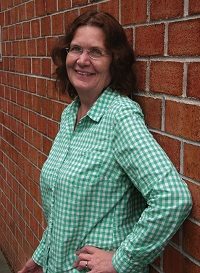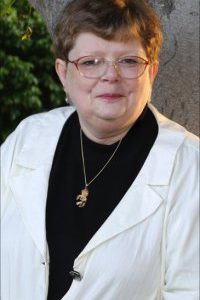Spotlight on: Analog Awards for Emerging Black Voices

 Tell us about the Analog Award for Emerging Black Voices. What is it, and why was it created?
Tell us about the Analog Award for Emerging Black Voices. What is it, and why was it created?
It’s an award meant to make the ‘‘on-boarding process’’ for Black prospective authors – traditionally under-represented in the sciences and in science fiction – a bit easier. Sometimes the biggest hurdle to breaking in is just a matter of access; there simply isn’t someone available to lay out clear steps for folks who are interested.
We like mentoring; we like sharing what we know. We’d do it with everyone who had any interest if we could, but our time is necessarily limited, so how do we do it as effectively as possible? Who would benefit from it the most?
The answers to those questions led us here, to an award focused on Black authors.
Who is eligible to submit?
Any writer 18 years or older who customarily identifies as Black and hasn’t published a novel/collection or had more than three paid short fiction publications.
Basically, we want to reach out to emerging writers who aren’t eligible for SFWA yet and help them make the transition from ‘‘unpublished’’ to ‘‘honest-to-goodness science fiction author.’’
What prizes does the winning author receive?
At the risk of sounding egomaniacal and seeming to say ‘‘Us! We’re the prize!’’ It’s access to what we know. It’s a year’s worth of monthly mentorship sessions, covering anything and everything. We help edit and polish the story that the winner entered until it’s ready for publication in Analog, paid at pro rates – we guide someone through their likely first sale, soup to nuts, and hopefully give them the tools to continue to sell, to us and to other markets.
Talk about the judging process. Who chooses the winner?
We have five judges – Emily Hockaday and myself at Analog are ongoing judges, but for our first year, we also had Nisi Shawl, Steven Barnes, and Kim-Mei Kirtland of the Howard Morhaim Literary Agency. Emily and I pare down the total number of entrants to a smaller pool, and then we all do a simple ranked-choice blind ballot; the story with the most points is the winner, and the next few largest totals are the runners-up.
The award launched in 2021. What kind of response did you get last year?

The reception was really positive – we had initially worried that we’d be duplicating the efforts of other mentorship programs, but it definitely feels like we’re contributing as part of a larger framework.
So our primary objective now is getting the word out!
Tell us about last year’s winner.
The 2021 winner was Kedrick Brown; he has a BS in Physics – which helped his story stand out, at least to me, since I always keep one eye on the hard SF element in anything – and is working on his second Master’s at Harvard. He’s looking to write optimistic stories that can have a positive impact, and we’re excited to be able to work with him.
What’s the submission process for this year’s award?
Submissions are open now! People interested can find more details here and can submit their stories of between 1,000 and 5,000 words to the email analogaward@gmail.com.
-Trevor Quachri, Editor of Analog
While you are here, please take a moment to support Locus with a one-time or recurring donation. We rely on reader donations to keep the magazine and site going, and would like to keep the site paywall free, but WE NEED YOUR FINANCIAL SUPPORT to continue quality coverage of the science fiction and fantasy field.
©Locus Magazine. Copyrighted material may not be republished without permission of LSFF.









